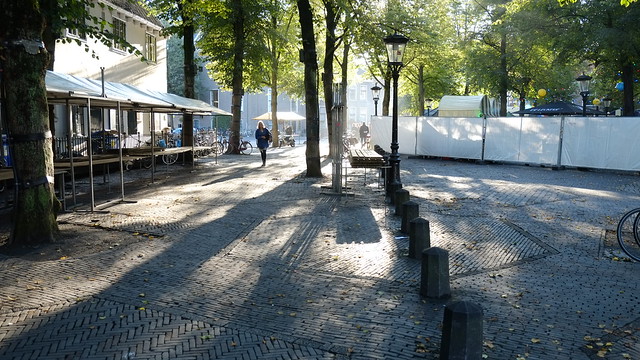Last year, my work took me to Korea, Azerbaijan (i.e., from one end of the Silk Road to the other) and the Netherlands, among other places.
Baku, the capital of Azerbaijan, was a fascinating place, and I had a terrific time there; but I was really struck by the contrast between the glittering monumental architecture and modern highways around the city, and the built environment outside those areas.
In the Netherlands, in contrast, good design and infrastructure are everywhere: you might not have anything as dramatic as the flame towers, but the more modest public spaces, and better private dwellings, make for a higher overall quality of life, I think.
It made me realize that for me, if I had to choose between a place that offered starchitecture and a well-tended glittering elite, and one that offered Ikea and universal health care, I’d go for the second.
Of course, that was in the Before Times, when we could still travel. The last year has shown us how much we lose by under-investing in education, how important public health is, and how big the gap between “essential” work and job security and cinema have become. So when the LA Review of Books asked me to review The Innovation Delusion, the new book by Lee Vinsel and Andrew Russell, I had to say yes.
The review came out today. It’s a good book, and I think they make a great case for taking maintenance and repair seriously.
Despite their invisibility, they [maintenance and repair] are indispensable, and absolutely essential in a crisis. There’s nobility in “keeping daily life going, caring for the people and things that matter most to us, and ensuring that we preserve and sustain the inheritance of our collective pasts,” they write. “It’s the overlooked, undercompensated work that keeps our roads safe, our companies productive, and our lives happy and secure.”
You can read it here.
Also, a pro tip that I picked up somewhere along the way: a professor who reviewed a lot of books told me that one key to writing a good review was to direct your criticism at the book not the author, and to direct your praise at the author.
So rather than “Unfortunately, Jones fails to grapple with the implications of their argument,” choose “Unfortunately, The Latest Monograph fails to grapple with the implications of their argument.”
This makes the criticism less personal, and more likely to be taken seriously, and it’s a reminder than you’re reviewing a book, not a person.

